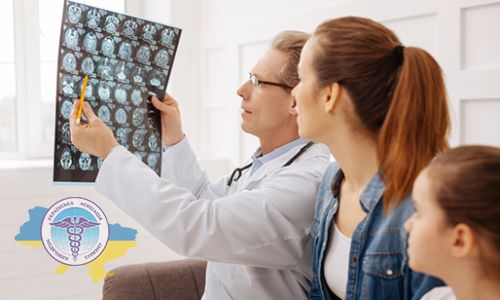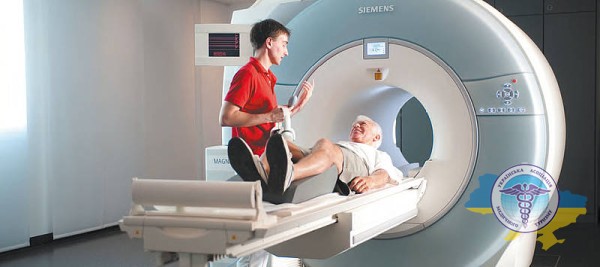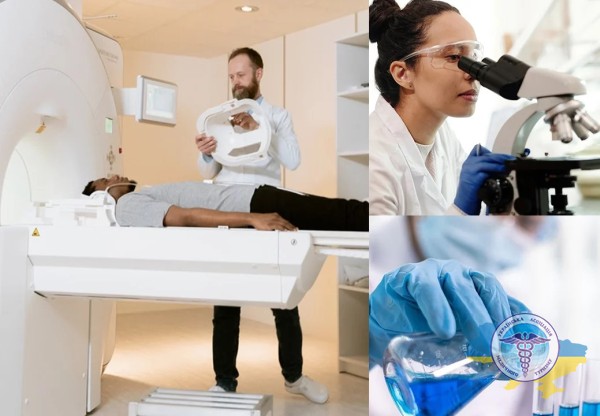Diagnosis of diseases in clinics of Germany

Taking care of your health and timely diagnosis is the key to longevity and a good quality of life. Regular medical examination of the body allows you to assess its condition, adjust your lifestyle and detect changes at an early stage.
Many patients from all over the world choose German clinics for examination, trusting the highest standards of European medicine. Medical institutions in this country are famous for their advanced equipment, professionalism of doctors and the use of the latest techniques.
During diagnostics in Germany, the most modern methods of studying the body are used, which make it possible not only to detect a pathological process, but also to find the causes of its occurrence and choose the optimal treatment tactics. Moreover, the cost of many procedures is significantly lower than in other countries with developed medicine.

Want to know how much the diagnostics costs?
Answer a few questions and get preliminary information about the cost of diagnosis and treatment!
In what cases is it better to undergo a medical examination in Germany?

It is recommended to undergo a full medical examination in Germany:
- If suspicious symptoms appear (headaches, swelling, acute abdominal discomfort, etc.). Often, “alarm bells” are ignored, but they can signal serious health problems. For example, frequent headaches may be a symptom of hypertension, a brain tumor, or vascular disease.
- With an unhealthy lifestyle. Smoking causes enormous harm to all systems of the body - respiratory, cardiovascular, digestive and genitourinary, and alcohol abuse leads to damage to the liver, pancreas and peripheral nerves. Chronic stress depletes the nervous system, provokes depression, insomnia and reduces immunity.
- With bad heredity. Many diseases, especially serious ones (diabetes mellitus, hypertension, coronary heart disease, cancer, etc.) are often inherited. In this case, it is very important to undergo regular screening to identify the first changes in the body.
- For prevention and health maintenance. Regular check-up is the key to longevity, continued ability to work and physical activity. Timely checking of the body prevents the development of chronic forms of the disease and severe complications. In addition, doctors can assess your general condition, adjust your lifestyle and give recommendations on nutrition and exercise.
- To get an alternative opinion. If at home it is not possible to make an accurate diagnosis or select an effective treatment, it makes sense to get a second opinion from outside specialists.
Advantages of diagnosing diseases in German clinics
- The best equipment. The state annually invests in medical equipment of the highest class. Clinics and medical centers are equipped with the most advanced laboratory equipment from the world's leading manufacturers for conducting ultra-precise analyzes at the cellular and genetic level, as well as the latest generation CT and MRI devices.
- Consultations from highly qualified specialists. All doctors have the highest category and regularly undergo advanced training and certification. Many of them are internationally renowned, their articles are published in prestigious journals, and their clinical experience amounts to decades.
- Ready results in one day. Unlike other countries, where a basic examination takes months, a comprehensive Check-Up in Germany takes only 1–2 days. All tests are carried out according to fixed medical protocols, which guarantees the highest quality and reliability of the results.
- Diagnosis at the earliest stages. The programs are developed by experts in the field of comprehensive health assessment, taking into account the latest scientific developments and technologies. Innovative biomarkers, advanced panels of genetic and laboratory tests and a personalized approach with an emphasis on predisposing factors in each individual patient are used.
- Automated system for processing biomaterials. Each sample is marked with a unique barcode, which is automatically assigned to a specific patient in the database. This completely eliminates the possibility of mixing up samples and guarantees that the results are linked specifically to your analyzes.
- Doctor's report with the most detailed results. After undergoing diagnosis of the disease in Germany, you are given a detailed report with all the indicators. Based on the results obtained, detailed recommendations are given on the necessary preventive, rehabilitation or therapeutic measures.
- Strict compliance with international standards. You will be prescribed the necessary program depending on your age, gender, medical history, lifestyle and associated risk factors. This personalized approach allows you to obtain maximum diagnostic information with a minimum of unnecessary procedures.
What procedures does a basic Check-Up of the body include?

Programs in German clinics are developed on the basis of advanced international standards. This allows not only to diagnose existing diseases, but also to prevent the risks of their development in the future.
Preliminary consultation with a medical specialist
Check-Up in German clinics begins with an initial consultation, which consists of:
- Studying the medical record. The doctor pays special attention to chronic diseases, previous surgeries, allergic reactions and genetic predisposition. Data from previous screening and analyzes are taken into account.
- Patient survey. As a result, the doctor receives a complete picture of current complaints, pain and the dynamics of well-being. The medical specialist will also ask about eating habits, diet, physical activity, working conditions, and stress levels.
- Full inspection. It measures vital body parameters, examines the skin, and tests hearing and vision. Palpation of the lymph nodes, thyroid gland and internal organs is mandatory, and the parameters of the respiratory and cardiovascular systems are checked.
Comprehensive examination of the patient's body
Basic Check-Up in Germany includes:
- Detailed examination of the heart and lungs. This includes echocardiography, pulmonary testing at rest and during activity, and pulse oximetry. They allow you to assess the condition of the heart, blood vessels, as well as check blood oxygen saturation and the performance of the respiratory system.
- Detailed examination of the gastrointestinal tract. For this, endoscopy, ultrasound with color Doppler mapping, as well as colonoscopy with targeted biopsy of suspicious formations and subsequent histological examination to detect cancer in the early stages are performed.
- Screening of brain vessels, abdominal organs and lower extremities. Color Dopplerography of the extracranial sections of the brachiocephalic arteries, the abdominal aorta and its visceral branches, the renal and iliac arteries is performed. If pathological changes are detected, an extensive examination is performed to clarify the extent, location and degree of vascular stenosis.
- Examination of the organs of vision and hearing. All patients undergo standard ophthalmological and otorhinolaryngological procedures, which include vision testing and selection of spectacle correction, measurement of intraocular pressure, fundus examination, audiometry and determination of hearing thresholds.
Laboratory research
The patient is prescribed the following tests:
- General blood test. With its help, it is possible to evaluate the composition of the blood, the number of red blood cells, leukocytes and platelets. The erythrocyte sedimentation rate and the level of C-reactive protein as a marker of inflammation are also examined.
- Urinalysis. It allows you to obtain important information about the condition of the kidneys and urinary system. Leukocytes, protein, glucose, ketones, red blood cells, pigments and salts are examined.
- Indicators of total cholesterol and high and low density lipoproteins. They are necessary to assess the risk of developing atherosclerosis and pathologies of the cardiovascular system.
- Kidney function test. Determining the level of uric acid allows you to identify disorders of purine metabolism and the risk of developing gout. Analysis of creatinine levels and calculation of glomerular filtration rate reflects the ability of the kidneys to filter the products of nitrogen metabolism.
- Liver enzymes. To assess the functional state of the liver, enzymes such as ALT, AST and total bilirubin are determined. Exceeding these values indicates hepatocyte damage, often caused by toxic substances or viral hepatitis.
- Coagulogram. This is a set of tests characterizing the hemostatic system, which includes determining prothrombin time, aPTT, fibrinogen levels, antithrombin III, D-dimer and other indicators.
- Analysis of blood electrolytes. Provides important information about water-salt metabolism. Imbalance of minerals can cause cardiac arrhythmias, muscle weakness, seizures and other dangerous conditions.
- Assessment of thyroid function. Determination of TSH (thyroid-stimulating hormone) allows us to identify hypo- or hyperfunction, and analysis of free forms of thyroid hormones T3 and T4 gives an idea of the current hormonal status.
What types of check-up diagnostics are offered in German clinics?

Body Check-Up programs in Germany can be classified as follows:
- For men. In addition to the standard examination program, a detailed consultation with a urologist is carried out. The examination includes a rectal examination and ultrasound of the prostate and bladder to detect possible tumors at an early stage. It is also necessary to examine the level of prostate-specific antigen (PSA) in the blood, an increase in which may indicate the development of prostate cancer 5–7 years before the onset of clinical symptoms.
- For women. The program necessarily includes an examination by a gynecologist with a cytological examination of smears from the cervix, which allows you to diagnose inflammatory processes and detect cancer at an early stage. A blood test is also performed to check for human papillomavirus, the main cause of cervical cancer. Mammography is also performed to detect breast tumors.
- Children's Check-Up. In addition to a general blood and urine test, the hormonal profile, height, weight and physical development are examined. A consultation with a pediatrician, neurologist, orthopedist is carried out, and a stool test for eggs of worms and protozoa is carried out. Particular attention is paid to the prevention and early diagnosis of hereditary pathologies.
- Oncology Check-Up. It includes screening for the most common cancers - lung, breast, colon, prostate and cervical cancer. The program is selected individually, taking into account age, gender, risk factors and hereditary predisposition.
- Diagnostics of cardiovascular diseases. For this purpose, coronary angiography, 24-hour ECG and blood pressure monitoring, echocardiography, stress tests and computed tomography of the heart are performed.
How to choose a clinic for comprehensive diagnostics?
- For complex diagnostics in Germany, large multidisciplinary medical centers are best suited, having all the necessary departments - a laboratory, radiation and functional diagnostic departments and a wide range of medical specialists. This will allow you to undergo a full examination and receive recommendations for further treatment tactics in one place.
- For specialized examination (cardiology, oncology), it is better to choose a specialized clinic. For example, a cardiovascular clinic or an oncology center. It has the latest generation diagnostic equipment, and doctors have a highly specialized specialization in the desired area.
- Pay attention to the equipment of the clinic - the presence of modern diagnostic equipment (MRI, CT, PET, etc.), laboratory, as well as functional and radiation diagnostics.
- Also take into account the presence of accreditation according to international quality standards - JCI (USA) or ISO (Europe). They confirm the high level of equipment, safety, qualifications of personnel and the correct organization of the treatment process.
- Give preference to large federal medical centers and research institutes. They have the most advanced equipment, conduct scientific research, and have reputable specialists and professors of medicine on their staff.
- If you have difficulty choosing a clinic, use the service of a medical coordinator. An experienced doctor will analyze your needs, review your medical history, assess risk factors and recommend the best medical facility.
How much does a comprehensive body examination cost in Germany?
The cost of diagnostics in German clinics depends on a number of factors:
- Clinic level. In large federal medical centers and renowned private medical institutions, prices are much higher. This is due to the presence of highly qualified specialists, modern diagnostic equipment and more comfortable living conditions.
- Check-Up program. A standard 1-2 day basic examination will be cheaper than a multi-day in-depth diagnosis according to an individual plan. For example, an oncological Check-Up with imaging studies will cost significantly more than a general examination.
- Additional options. Transfer from the airport, translation services during consultations or inpatient accommodation in a number of medical centers are included in the total cost of the program, but in some places they will have to be paid separately.
- Qualification of medical staff. Consultations with world-famous experts, professors and heads of departments will be more expensive than with ordinary specialists, which is justified by their greater experience and knowledge.
- Technical equipment of the clinic. The presence of such complex and expensive equipment guarantees higher accuracy of the diagnosis, but increases the overall cost.
- Duration. A standard comprehensive examination takes 1–2 days. Highly specialized programs can last up to 3–5 days, which increases the cost of food and accommodation.
Below is a table with estimated prices for diagnostics in Germany:
| Procedure | Cost, € |
|---|---|
| Comprehensive Check-Up | 4500 |
| Screening of formations | 2600 |
| Check-Up for men | 2650 |
| Check-Up for women | 2650 |
| Screening of skin diseases | 350 |
| MRI of the head | 1250 |
| MRI of the abdominal cavity | 1250 |
| Comprehensive blood test | 630 |
| Computed tomography of the head | 820 |
| CT scan of the abdominal cavity | 820 |
| CT chest | 820 |
| Consultation with drawing up a treatment plan | 431 |
| Oncological Check-Up | 1078 |



